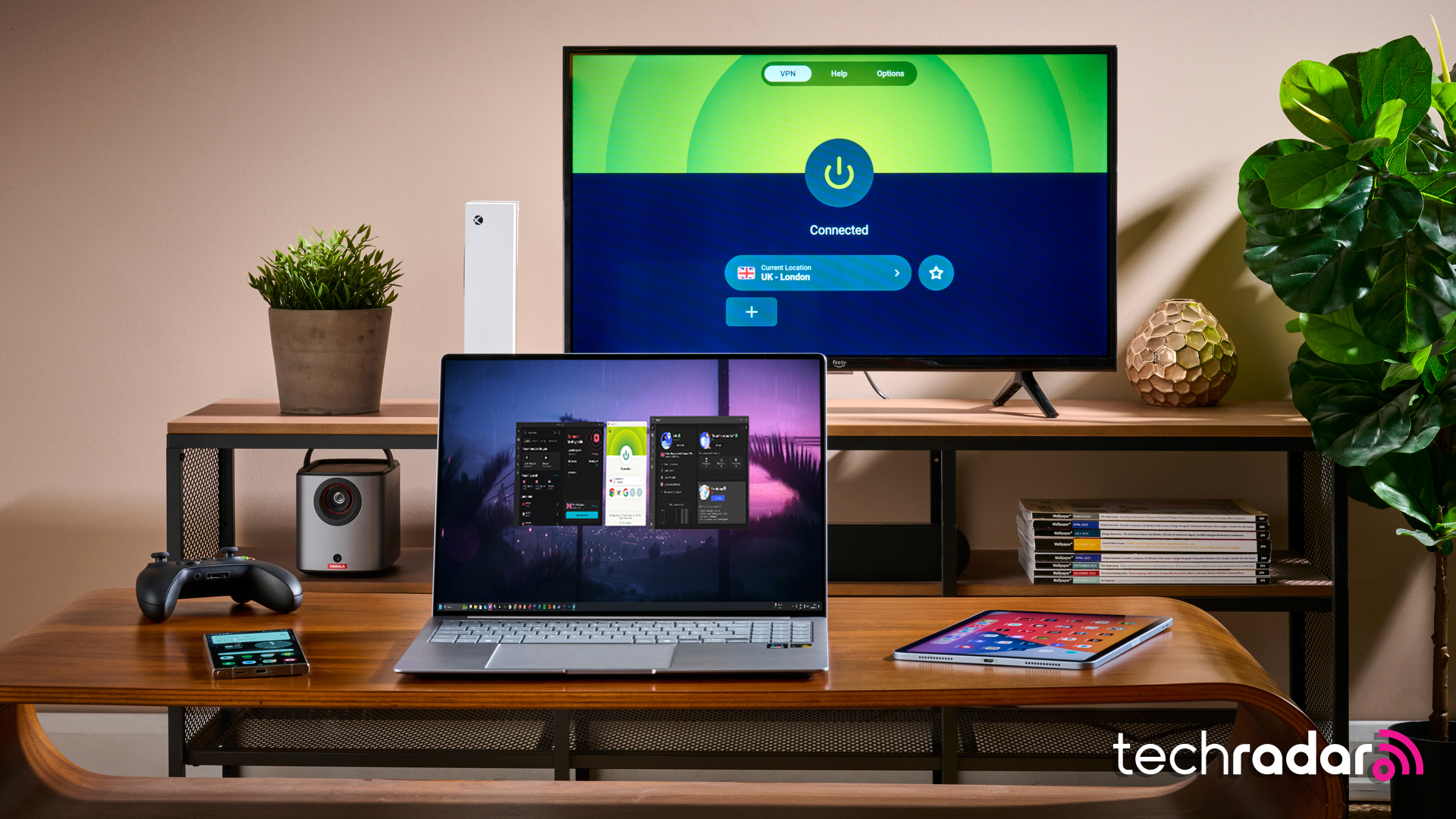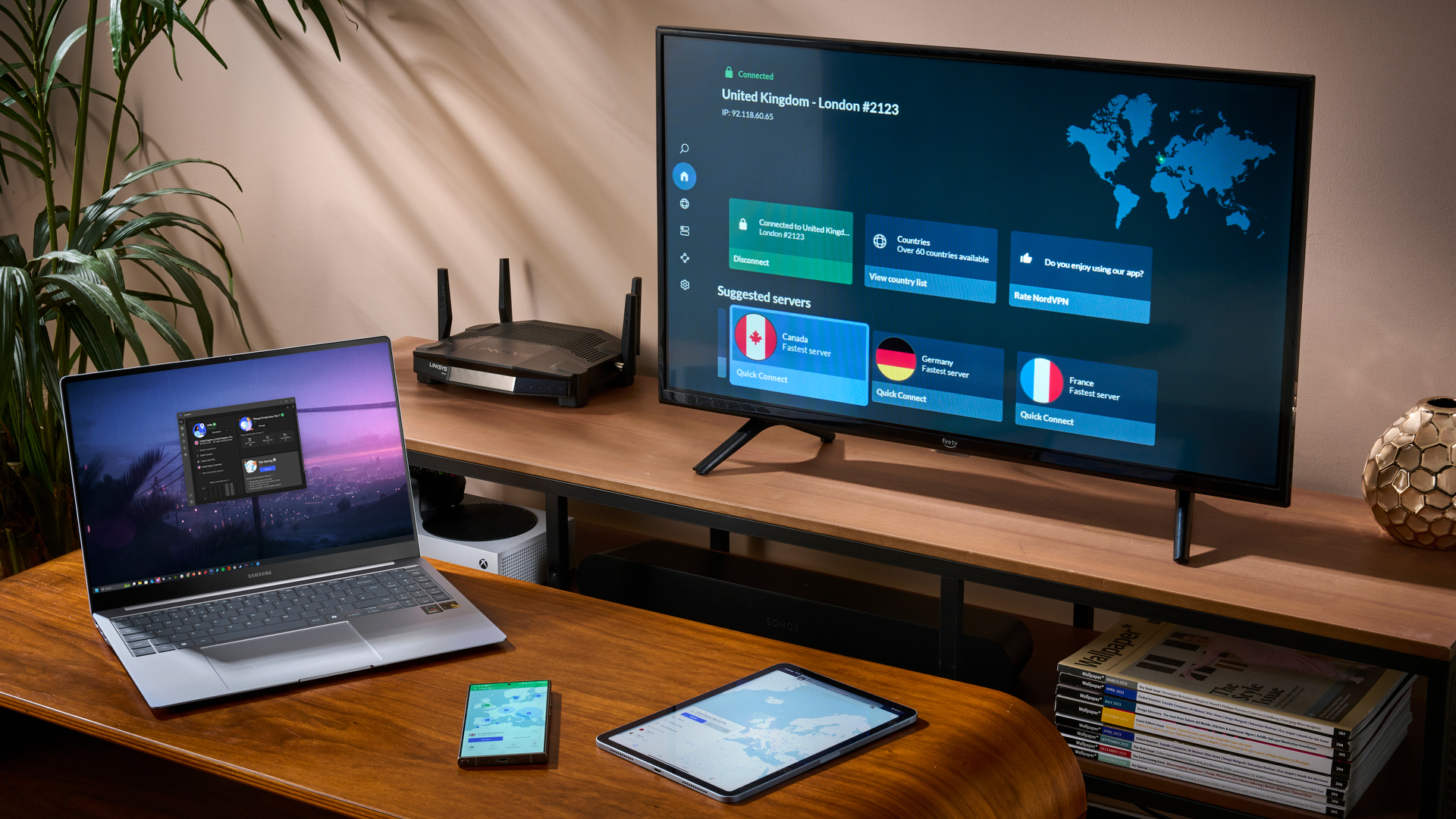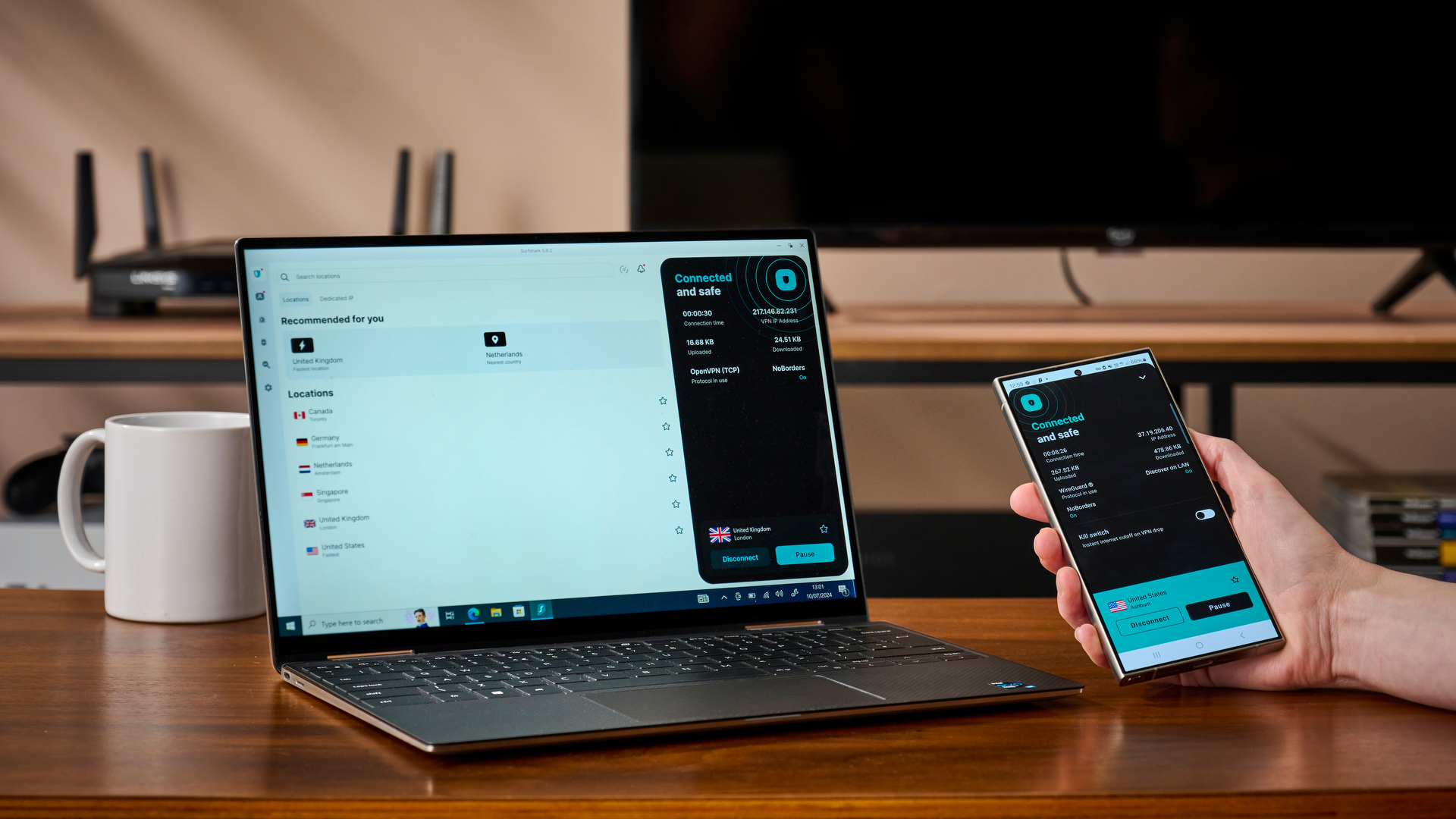TechRadar’s new VPN rankings just landed – and there are some big changes
There have been quite a few changes this time around

Our experts spend hundreds of hours regularly testing VPN apps to give you the best and most up-to-date buying advice. Well, after another round of deep dives, there are some big changes to our best VPN rankings.
While some testing sessions are less eventful – often confirming rather than revolutionizing our top VPN list – there have been several interesting changes this time around. From checking unblocking and threat protection capabilities to speeds, server network, pricing, and new releases: some providers have recorded important wins to the detriment of some big names.
Keep reading to see what has changed, what hasn't, and what all this means for you. Understanding the reasoning behind our rankings is crucial for choosing today's best software according to your needs.
NordVPN remains TechRadar's top choice

For all our long-standing readers who have trusted our previous buying advice, it's good news, as NordVPN continues as TechRadar's best VPN choice. NordVPN's latest round of testing showed impressive results across all platforms, with little in terms of concerns. Most notably, its speeds and unblocking results continue to top our rankings, even if it's matched in some instances by the likes of Surfshark or Proton VPN.
A VPN, short for virtual private network, is a security software that encrypts your internet connection to secure all the data leaving your device. It also spoofs your real IP address and location to boost your online anonymity and grant you access to otherwise geo-blocked content.
Our testing also showed numerous browser extension improvements, including location spoofing which tells your browser to use the VPN’s virtual location, and the complete rebuilding of the Firefox extension to improve security. Similarly, there also are some improvements with its Meshnet feature, including faster file sharing and the ability to personalize device names so they’re easier to recognize.
Most notably, NordVPN has seriously upped its game for malware and phishing protection. The newly launched Threat Protection Pro has already proven itself to be a highly effective security tool, using AI to help identify newly created threats. Yes, you'll need to upgrade above the Basic plan to use this tool, but our results show that it's well worth it for your online safety.
Surfshark rises to second place
Our first ranking change comes in the form of Surfshark, that now sits second in our best VPN list. Fixing a number of issues we'd found in prior testing while continuing to be the best cheap VPN – and the fastest VPN – available, its performance now puts it just shy of NordVPN, even if we're definitely splitting hairs at this point across most of the top five.

In our speed tests, Surfshark has long held the crown as the fastest VPN, and, while the likes of NordVPN and Proton match it in some ways, this hasn't changed. Surfshark continues to cap out our testing lines, reaching over 950 Mbps on WireGuard throughout testing, something which didn't even change when connecting from the UK to the US.
Our top VPNs often have little difficulty unblocking your favorite streaming services during testing, and, despite some rectifiable hiccups during testing for ExpressVPN, this round of testing proved no different. Surfshark was more than capable of unblocking services such as Netflix and Prime Video, alongside regional services including BBC iPlayer and 10 Play, affirming why it continues to rank among our best Netflix VPNs.
Pricing is something that often sets Surfshark apart, and this continues to be the case. Continuing to rank among our best cheap VPNs, Surfshark's $2.79 per month price tag over two years is a difficult thing to contend with. ExpressVPN has added a cheaper than previous two-year plan at $5.32 per month to try and compete but the host of added features you get with Surfshark still bring it that extra value.
Proton VPN makes its first top five appearance
Alongside Surfshark's rise in rank comes Proton VPN's entrance into our top five. Again, there is a mix of reasons behind this choice. Proton VPN has often sat among the fastest VPNs we test, but has often fallen just short. On this occasion, however, Proton VPN matched some of the very best, peaking at 950+Mbps when connected to the WireGuard protocol.

An improvement of note this time round was the boost to Proton VPN's server network. Proton now has locations across 112 countries – more than NordVPN or ExpressVPN – and includes regions other providers often overlook such as Africa (Proton has 22 servers in contrast to the 7 NordVPN has) and Asia (42, against 34 from ExpressVPN and 32 from NordVPN).
Much like Surfshark, Proton VPN brings value with the price at $3.59 per month at its lowest. There's also the scope to upgrade for access to Proton's other privacy-focused services including email, a password manager, file storage, calendar and more.
How we test VPNs
We take our reviewing process very seriously and are committed to running VPN tests regularly to offer only up-to-date recommendations. To do so, our experts undertake a rigorous array of tests designed to determine the strengths and weaknesses of each VPN service.
The testing process begins by gathering as many technical details as possible about every product. These details span from network size and server locations to supported protocols, encryption methods, security features, and independent audit results. Reviewers then compare the information and conduct subsequent in-house tests accordingly.
Many factors need to be verified to assess the reliability of VPN software. Is the privacy and security infrastructure in line with industry standards? Does it work as promised? Does the VPN offer fast connections? Does it unblock geo-restricted content without any issues? How's the provider's customer support?
To answer these questions, our reviews include practical tests, including speeds, streaming unblocking, and various security checks. You can read more about our testing process on our methodology page.

Mike Williams has been our lead tester for years – he's responsible for our speed analysis, stream unblocking tests, and functionality testing. He'll find out if a kill switch won't hold up under stress, or whether or not your IP address is likely to leak out. Mike is always peeking behind the curtain to see how a VPN app is coded to unveil the truth of a VPN's build quality. He also tests VPN apps on Windows, Mac, Linux, iOS, Android, Apple TV, Fire Stick, and Roku.
Bottom line
It's important to stress that these ranking variations are a cumulation of many factors, but that doesn't mean that we no longer recommend the negatively impacted providers, in this case, ExpressVPN and Private Internet Access (PIA).
All the providers listed in our guide are secure and worth subscribing to. These new pieces of information are for you to shape your buying choices according to your own needs.
Do you need more servers around Africa and Asia? Proton VPN may be your best bet, then. Is connection speed a defining factor for you? You should probably consider NordVPN or Surfshark over PIA. And so on.
It's also worth reminding you that all the VPN services in our rankings come with some form of money-back guarantee (generally 30 days). This means you can try them out risk-free and decide for yourself if the software is really value for money – for you, at least.

Chiara is a multimedia journalist committed to covering stories to help promote the rights and denounce the abuses of the digital side of life – wherever cybersecurity, markets, and politics tangle up. She believes an open, uncensored, and private internet is a basic human need and wants to use her knowledge of VPNs to help readers take back control. She writes news, interviews, and analysis on data privacy, online censorship, digital rights, tech policies, and security software, with a special focus on VPNs, for TechRadar and TechRadar Pro. Got a story, tip-off, or something tech-interesting to say? Reach out to chiara.castro@futurenet.com